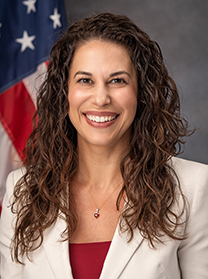Elon Musk’s age of government efficiency has spread to Florida, with legislation advanced last week that would abolish at least 22 state boards that oversee licensing and disciplinary reviews for engineers, contractors, building inspectors, accountants and many more professionals.
House Bill 1461, approved by a House Budget Committee subcommittee last week, also would drop some continuing education requirements for licensees. If it passes the full Florida Legislature and is signed into law, it could potentially have an impact on property/casualty insurance claims, claims defense, subrogation, and on expert witnesses used in litigation.
“This boggles my mind that they’re doing this,” said George Miles, a Florida engineer who has filed complaints against more than a dozen other engineers who have testified for or drafted reports for plaintiffs in insurance claims disputes.
 He argued that Florida’s 11-member Board of Professional Engineers needs more teeth, not fewer, to censure engineers who make assertions that go against engineering standards or have little or no evidence to support them.
He argued that Florida’s 11-member Board of Professional Engineers needs more teeth, not fewer, to censure engineers who make assertions that go against engineering standards or have little or no evidence to support them.
But with the Donald Trump administration’s government efficiency effort, led by billionaire entrepreneur Elon Musk, making widespread cuts to federal agencies and services, HB 1461 seems to be gaining steam in the Florida Legislature. It was approved by one Commerce Committee subcommittee earlier this month, and by the State Administration Budget Subcommittee last week. Several lawmakers said at the subcommittee hearing last week that the measure would improve efficiency in state government and streamline services for professionals and the public.
Others questioned its effect on public safety and homebuilding.
The bill would repeal the oversight boards and put licensing and disciplinary review under the state Department of Business and Professional Regulation. The DBPR already oversees or houses most of the professional review boards but leaves most of the work to the boards, which are made up mostly of members of the industry being regulated.
The bill’s co-sponsor, Rep. Tiffany Esposito, said at the meeting that the bill targets those boards that have produced few disciplinary actions against licensees in recent years.

“The DBPR has to pay for travel for board members every time these boards meet, and their work is minimal and it’s often rubber stamping a lot of things,” Esposito said.
She also argued that continuing education, required for most professionals, is often little more than an illusion.
“I think we’ve all been in professions where we have to do continuing education and, quite frankly, we don’t actually do it,” Esposito said at the hearing. “We sit there and we hit a button and wait for the timer to go.”
While CE courses may be well-intended, “in execution, I don’t think it’s actually doing anything,” she added. “The very best training is on-the-job training.”
Others disagreed and questioned if DBPR would have the staff or the professional experience or knowledge to review complaints and weed out people who don’t meet standards or who don’t stay abreast of changes in building codes, for example, and technology.
“The DBPR does a great job now with a lot of the work. But we don’t feel that they have the expertise in math and science, in-house, to qualify professionals such as landscape architects,” said Chris Johnson, a landscape architect in Tallahassee who spoke at the subcommittee meeting.
The American Society of Civil Engineers sent an email blast to members last week, urging them to ask Florida lawmakers to vote the bill down. “While the aim of the legislation appears to be removing obstacles to economic opportunity and improving overall government ‘efficiency,’ in practice it would jeopardize the health and welfare of all Floridians,” the bulletin reads.
A co-sponsor of the bill, Rep. Taylor Yarkosky, acknowledged that a preliminary analysis shows that the reshuffling would not save tax dollars, but might actually cost the DBPR a little more each year. A legislative staff analysis notes that the bill could reduce state government’s administrative costs associated with maintaining the boards and commissions.
Subcommittee Chair Rep. Vicki Lopez said she has asked the Department of Business and Professional Regulation to provide a more complete cost-benefit analysis.
It’s possible that the bill will be changed as it moves through the Legislature. Yarkosky, himself a building contractor, said he is continuing to meet with some three dozens stakeholders who may be affected by the bill. The measure is now in the full House Commerce Committee. A Senate version, SB 1452, has seen no action since it was referred to a Senate committee in March.
The licensing, education and disciplining of many professionals targeted by the bills could affect insurance matters, resulting from construction defects or structures improperly built on sinkhole areas, for example. And the engineering board’s proposed demise could have a impact on claims litigation and the many expert witnesses who provide damage reports.
Structural and civil engineers have long been key players in claims litigation. Throughout the Florida property insurance litigation crisis, from 2015 to 2023, insurance companies and defense attorneys argued that some plaintiffs’ engineers had repeatedly exaggerated wind or water damage, or blamed losses on phenomena that weren’t proven.
Few of those engineers were formally sanctioned. Their assertions were challenged only in court by insurance lawyers, and insurance carriers often hired their own expert witnesses to provide damage assessments and cause of loss, adding to litigation expenses. One longtime Florida engineer famously claimed in litigation reports that hurricane winds actually speed up as they move over a roof, producing wind speeds that were far greater than those recorded by nearby instruments.
After Miles, a consulting engineer in Daytona, turned in several plaintiffs’ engineers in recent years, filing formal complaints with the Board of Professional Engineers, at least two of them received letters of guidance from the board. The letters did seem to have an impact, and the two engineers have largely moved on from testifying in claims disputes, Miles said.
He and others in the industry have suggested that the board needs to take more severe disciplinary actions against engineers who make unsupported claims, but that the board is limited in its ability to censure or suspend licenses. Lumping the board’s functions under a larger bureaucracy is likely to exacerbate that problem, not improve it, Miles argued. With fewer disciplinary actions on engineers’ records, insurance defense attorneys may have fewer grounds on which to challenge witnesses and reports.
“I’m for some of that (government efficiency),” he said. “But we need regulations when people make money off their professional licenses.”
Without a board of peers scrutinizing the profession, “it will allow laziness to set in,” with some engineers feeling that they can avoid keeping up with research, changes in technology and building codes, he said.
The trend toward smaller government and deregulation appears to be gaining steam in other areas affecting property-casualty insurance – and in other states. Colorado’s governor last year signed a similar law that will sunset the state board of architects, engineers and surveyors in 2033.
In Florida, a bill has proposed greatly reducing the number of education hours needed before taking the insurance agent’s license exam. In North Carolina last week, a House committee approved a plan to remove education requirements altogether for producer license applicants.
Was this article valuable?
Here are more articles you may enjoy.



 Trump Demands $1 Billion From Harvard as Prolonged Standoff Appears to Deepen
Trump Demands $1 Billion From Harvard as Prolonged Standoff Appears to Deepen  Beazley Agrees to Zurich’s Sweetened £8 Billion Takeover Bid
Beazley Agrees to Zurich’s Sweetened £8 Billion Takeover Bid  Chubb CEO Greenberg on Personal Insurance Affordability and Data Centers
Chubb CEO Greenberg on Personal Insurance Affordability and Data Centers  Insurance Broker Stocks Sink as AI App Sparks Disruption Fears
Insurance Broker Stocks Sink as AI App Sparks Disruption Fears 


